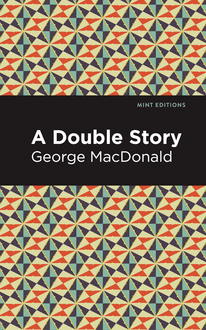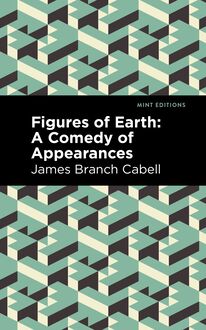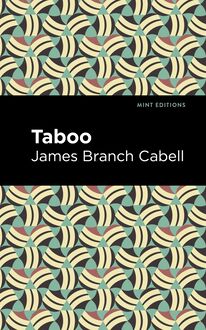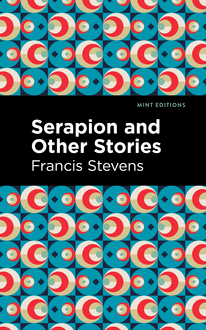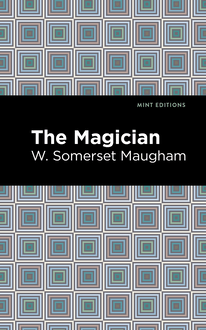-
 Univers
Univers
-
 Ebooks
Ebooks
-
 Livres audio
Livres audio
-
 Presse
Presse
-
 Podcasts
Podcasts
-
 BD
BD
-
 Documents
Documents
-
- Cours
- Révisions
- Ressources pédagogiques
- Sciences de l’éducation
- Manuels scolaires
- Langues
- Travaux de classe
- Annales de BEP
- Etudes supérieures
- Maternelle et primaire
- Fiches de lecture
- Orientation scolaire
- Méthodologie
- Corrigés de devoir
- Annales d’examens et concours
- Annales du bac
- Annales du brevet
- Rapports de stage
La lecture à portée de main
Vous pourrez modifier la taille du texte de cet ouvrage
Découvre YouScribe en t'inscrivant gratuitement
Je m'inscrisDécouvre YouScribe en t'inscrivant gratuitement
Je m'inscrisEn savoir plus
Vous pourrez modifier la taille du texte de cet ouvrage
En savoir plus

Description
A Prisoner in Fairyland (1913) is a novel by Algernon Blackwood. Having already established himself as a promising short story writer, Blackwood began publishing novels at the age of 40. A lifelong occultist, Blackwood was interested in the fine line between the human and spiritual realms, often incorporating supernatural elements into his work. A Prisoner in Fairyland is a story of a wealthy retiree’s return to the wonderful imaginative world of his youth. Hoping to spend the rest of his life in service of others, he gets the old Starlight Express up and running again. “For, from boyhood up, a single big ambition had ever thundered through his being—the desire to be of use to others. To help his fellow-kind was to be his profession and career.” Henry Rogers has always been a dreamer. On the brink of retirement, he plans to use his carefully accumulated wealth to fulfill his philanthropic destiny. Initially unsure of the shape of his charitable contribution to society, a trip to his childhood home changes everything. There, he finds the old train carriage where he would spend days at a time immersed in a world of fantasy and adventure. Back on the Starlight Express, Rogers plans to take deserving passengers to the wondrous realm of Fairyland. He soon discovers, however, that his impassioned beliefs—however well-intentioned—risk condemnation and persecution from those whose investments on Earth prevent them from indulging in imaginative excursions into the unknown. A Prisoner in Fairyland is a story for children and adults alike, a novel that poses timeless questions regarding the nature of our existence, both upon earth and beyond. With a beautifully designed cover and professionally typeset manuscript, this edition of Algernon Blackwood’s A Prisoner in Fairyland is a classic work of British literature reimagined for modern readers.
Sujets
Informations
| Publié par | Mint Editions |
| Date de parution | 28 mai 2021 |
| Nombre de lectures | 0 |
| EAN13 | 9781513288147 |
| Langue | English |
| Poids de l'ouvrage | 2 Mo |
Informations légales : prix de location à la page 0,0500€. Cette information est donnée uniquement à titre indicatif conformément à la législation en vigueur.
Extrait
A Prisoner in Fairyland
Algernon Blackwood
A Prisoner in Fairyland was first published in 1913.
This edition published by Mint Editions 2021.
ISBN 9781513283128 | E-ISBN 9781513288147
Published by Mint Editions®
minteditionbooks.com
Publishing Director: Jennifer Newens
Design & Production: Rachel Lopez Metzger
Project Manager: Micaela Clark
Typesetting: Westchester Publishing Services
C ONTENTS I II III IV V VI VII VIII IX X XI XII XIII XIV XV XVI XVII XVIII XIX XX XXI XXII XXIII XXIV XXV XXVI XXVII XXVIII XXIX XXX XXXI XXXII XXXIII XXXIV
I
Man is his own star; and the soul that can
Render an honest and a perfect man
Commands all light, all influence, all fate,
Nothing to him falls early, or too late.
Our acts our angels are, or good or ill,
Our fatal shadows that walk by us still.
— B EAUMONT AND F LETCHER
Minks—Herbert Montmorency—was now something more than secretary, even than private secretary: he was confidential-private-secretary, adviser, friend; and this, more because he was a safe receptacle for his employer’s enthusiasms than because his advice or judgment had any exceptional value. So many men need an audience. Herbert Minks was a fine audience, attentive, delicately responsive, sympathetic, understanding, and above all—silent. He did not leak. Also, his applause was wise without being noisy. Another rare quality he possessed was that he was honest as the sun. To prevaricate, even by gesture, or by saying nothing, which is the commonest form of untruth, was impossible to his transparent nature. He might hedge, but he could never lie. And he was “friend,” so far as this was possible between employer and employed, because a pleasant relationship of years’ standing had established a bond of mutual respect under conditions of business intimacy which often tend to destroy it.
Just now he was very important into the bargain, for he had a secret from his wife that he meant to divulge only at the proper moment. He had known it himself but a few hours. The leap from being secretary in one of Henry Rogers’s companies to being that prominent gentleman’s confidential private secretary was, of course, a very big one. He hugged it secretly at first alone. On the journey back from the City to the suburb where he lived, Minks made a sonnet on it. For his emotions invariably sought the safety valve of verse. It was a wiser safety valve for high spirits than horse-racing or betting on the football results, because he always stood to win, and never to lose. Occasionally he sold these bits of joy for half a guinea, his wife pasting the results neatly in a big press album from which he often read aloud on Sunday nights when the children were in bed. They were signed “Montmorency Minks”; and bore evidence of occasional pencil corrections on the margin with a view to publication later in a volume. And sometimes there were little lyrical fragments too, in a wild, original metre, influenced by Shelley and yet entirely his own. These had special pages to themselves at the end of the big book. But usually he preferred the sonnet form; it was more sober, more dignified. And just now the bumping of the Tube train shaped his emotion into something that began with
Success that poisons many a baser mind
With thoughts of self, may lift—
but stopped there because, when he changed into another train, the jerkier movement altered the rhythm into something more lyrical, and he got somewhat confused between the two and ended by losing both.
He walked up the hill towards his tiny villa, hugging his secret and anticipating with endless detail how he would break it to his wife. He felt very proud and very happy. The half-mile trudge seemed like a few yards.
He was a slim, rather insignificant figure of a man, neatly dressed, the City clerk stamped plainly over all his person. He envied his employer’s burly six-foot stature, but comforted himself always with the thought that he possessed in its place a certain delicacy that was more becoming to a man of letters whom an adverse fate prevented from being a regular minor poet. There was that touch of melancholy in his fastidious appearance that suggested the atmosphere of frustrated dreams. Only the firmness of his character and judgment decreed against the luxury of longish hair; and he prided himself upon remembering that although a poet at heart, he was outwardly a City clerk and, as a strong man, must permit no foolish compromise.
His face on the whole was pleasing, and rather soft, yet, owing to this warring of opposing inner forces, it was at the same time curiously deceptive. Out of that dreamy, vague expression shot, when least expected, the hard and practical judgment of the City—or vice versa. But the whole was gentle—admirable quality for an audience, since it invited confession and assured a gentle hearing. No harshness lay there. Herbert Minks might have been a fine, successful mother perhaps. The one drawback to the physiognomy was that the mild blue eyes were never quite united in their frank gaze. He squinted pleasantly, though his wife told him it was a fascinating cast rather than an actual squint. The chin, too, ran away a little from the mouth, and the lips were usually parted. There was, at any rate, this air of incompatibility of temperament between the features which, made all claim to good looks out of the question.
That runaway chin, however, was again deceptive. It did, indeed run off, but the want of decision it gave to the countenance seemed contradicted by the prominent forehead and straight eyebrows, heavily marked. Minks knew his mind. If sometimes evasive rather than outspoken, he could on occasion be surprisingly firm. He saw life very clearly. He could certainly claim the good judgment stupid people sometimes have, due perhaps to their inability to see alternatives—just as some men’s claim to greatness is born of an audacity due to their total lack of humour.
Minks was one of those rare beings who may be counted on—a quality better than mere brains, being of the heart. And Henry Rogers understood him and read him like an open book. Preferring the steady devotion to the brilliance a high salary may buy, he had watched him for many years in every sort of circumstance. He had, by degrees, here and there, shown an interest in his life. He had chosen his private secretary well. With Herbert Minks at his side he might accomplish many things his heart was set upon. And while Minks bumped down in his third-class crowded carriage to Sydenham, hunting his evasive sonnet, Henry Rogers glided swiftly in a taxi-cab to his rooms in St. James’s Street, hard on the trail of another dream that seemed, equally, to keep just beyond his actual reach.
It would certainly seem that thought can travel across space between minds sympathetically in tune, for just as the secretary put his latch-key into his shiny blue door the idea flashed through him, “I wonder what Mr. Rogers will do, now that he’s got his leisure, with a fortune and—me!” And at the same moment Rogers, in his deep arm-chair before the fire, was saying to himself, “I’m glad Minks has come to me; he’s just the man I want for my big Scheme!” And then—“Pity he’s such a lugubrious looking fellow, and wears those dreadful fancy waistcoats. But he’s very open to suggestion. We can change all that. I must look after Minks a bit. He’s rather sacrificed his career for me, I fancy. He’s got high aims. Poor little Minks!”
“I’ll stand by him whatever happens,” was the thought the slamming of the blue door interrupted. “To be secretary to such a man is already success.” And again he hugged his secret and himself.
As already said, the new-fledged secretary was married and wrote poetry on the sly. He had four children. He would make an ideal helpmate, worshipping his employer with that rare quality of being interested in his ideas and aims beyond the mere earning of a salary; seeing, too, in that employer more than he, the latter, supposed. For, while he wrote verses on the sly, “my chief,” as he now preferred to call him, lived poetry in his life.
“He’s got it, you know, my dear,” he announced to his wife, as he kissed her and arranged his tie in the gilt mirror over the plush mantelpiece in the “parlour”; “he’s got the divine thing in him right enough; got it, too, as strong as hunger or any other natural instinct. It’s almost functional with him, if I may say so”—which meant “if you can understand me”—“only, he’s deliberately smothered it all these years. He thinks it wouldn’t go down with other business men. And he’s been in business, you see, from the word go. He meant to make money, and he couldn’t do both exactly. Just like myself—”
Minks wandered on. His wife noticed the new enthusiasm in his manner, and was puzzled by it. Something was up, she divined.
“Do you think he’ll raise your salary again soon?” she asked practically, helping him draw off the paper cuffs that protected his shirt from ink stains, and throwing them in the fire. “That seems to be the real point.”
But Herbert evaded the immediate issue. It was so delightful to watch her and keep his secret a little longer.
“And you do deserve success, dear,” she added; “you’ve been as faithful as a horse.” She came closer, and stroked his thick, light hair a moment.
He turned quickly. Had he betrayed himself already? Had she read it from his eyes or manner?
“That’s nothing,” he answered lightly. “Duty is duty.”
“Of course, dear,” and she brought him his slippers. He would not let her put them on for him. It was not gallant to permit menial services to a woman.
“Success,” he murmured, “that poisons many a baser mind—” and then stopped short. “I’ve got a new sonnet,” he told her quickly, determined to prolong his pleasure, “got it in the train coming home. Wait a moment, and I’ll give you the rest. It’s a beauty, with real passion in it, only I want to keep it cold and splendid if I can. Don’t interrupt a mom
-
 Univers
Univers
-
 Ebooks
Ebooks
-
 Livres audio
Livres audio
-
 Presse
Presse
-
 Podcasts
Podcasts
-
 BD
BD
-
 Documents
Documents
-
Jeunesse
-
Littérature
-
Ressources professionnelles
-
Santé et bien-être
-
Savoirs
-
Education
-
Loisirs et hobbies
-
Art, musique et cinéma
-
Actualité et débat de société
-
Jeunesse
-
Littérature
-
Ressources professionnelles
-
Santé et bien-être
-
Savoirs
-
Education
-
Loisirs et hobbies
-
Art, musique et cinéma
-
Actualité et débat de société
-
Actualités
-
Lifestyle
-
Presse jeunesse
-
Presse professionnelle
-
Pratique
-
Presse sportive
-
Presse internationale
-
Culture & Médias
-
Action et Aventures
-
Science-fiction et Fantasy
-
Société
-
Jeunesse
-
Littérature
-
Ressources professionnelles
-
Santé et bien-être
-
Savoirs
-
Education
-
Loisirs et hobbies
-
Art, musique et cinéma
-
Actualité et débat de société
- Cours
- Révisions
- Ressources pédagogiques
- Sciences de l’éducation
- Manuels scolaires
- Langues
- Travaux de classe
- Annales de BEP
- Etudes supérieures
- Maternelle et primaire
- Fiches de lecture
- Orientation scolaire
- Méthodologie
- Corrigés de devoir
- Annales d’examens et concours
- Annales du bac
- Annales du brevet
- Rapports de stage
